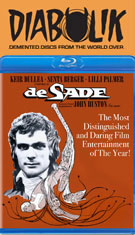
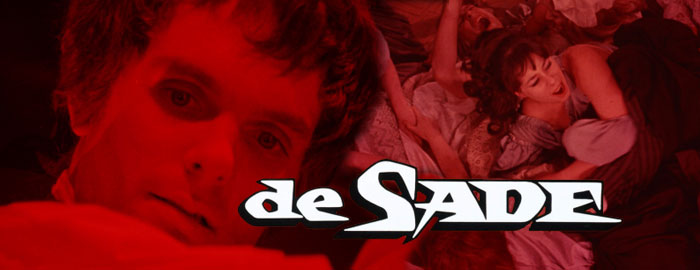
Color, 1969, 103 mins. 23 secs.
Directed by Cy Endfield
Starring Keir Dullea, Senta Berger, Lilli Palmer, Anna Massey, John Huston, Sonja Ziemann, Christiane Krüger, Uta Levka
Code Red | Kino Lorber (Blu-ray) (US RA HD), MGM (DVD) (US R1 NTSC) / WS (1.78:1) (16:9)
By the close of the 1960s, 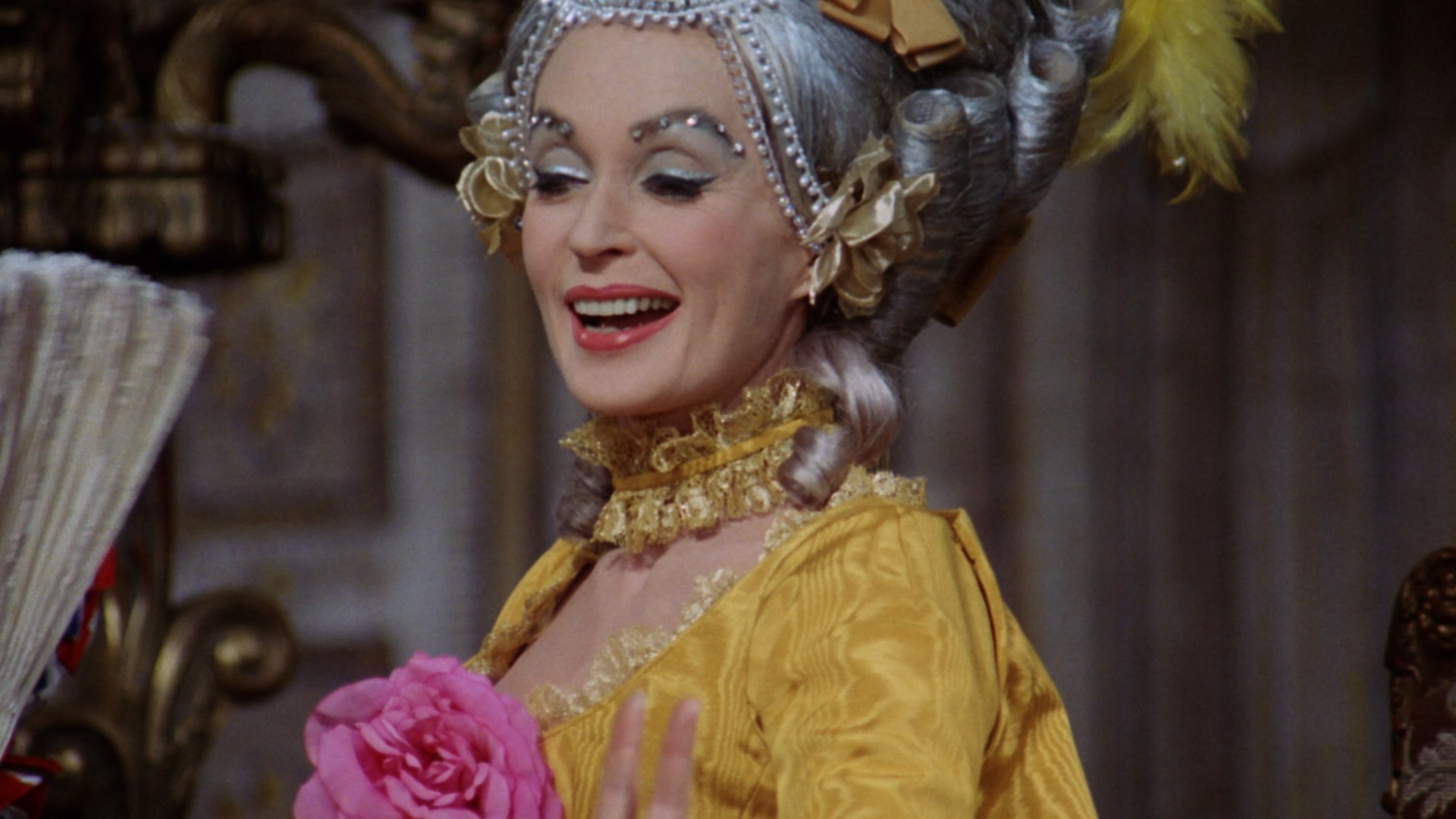 American International Pictures was in a strange place.
American International Pictures was in a strange place. 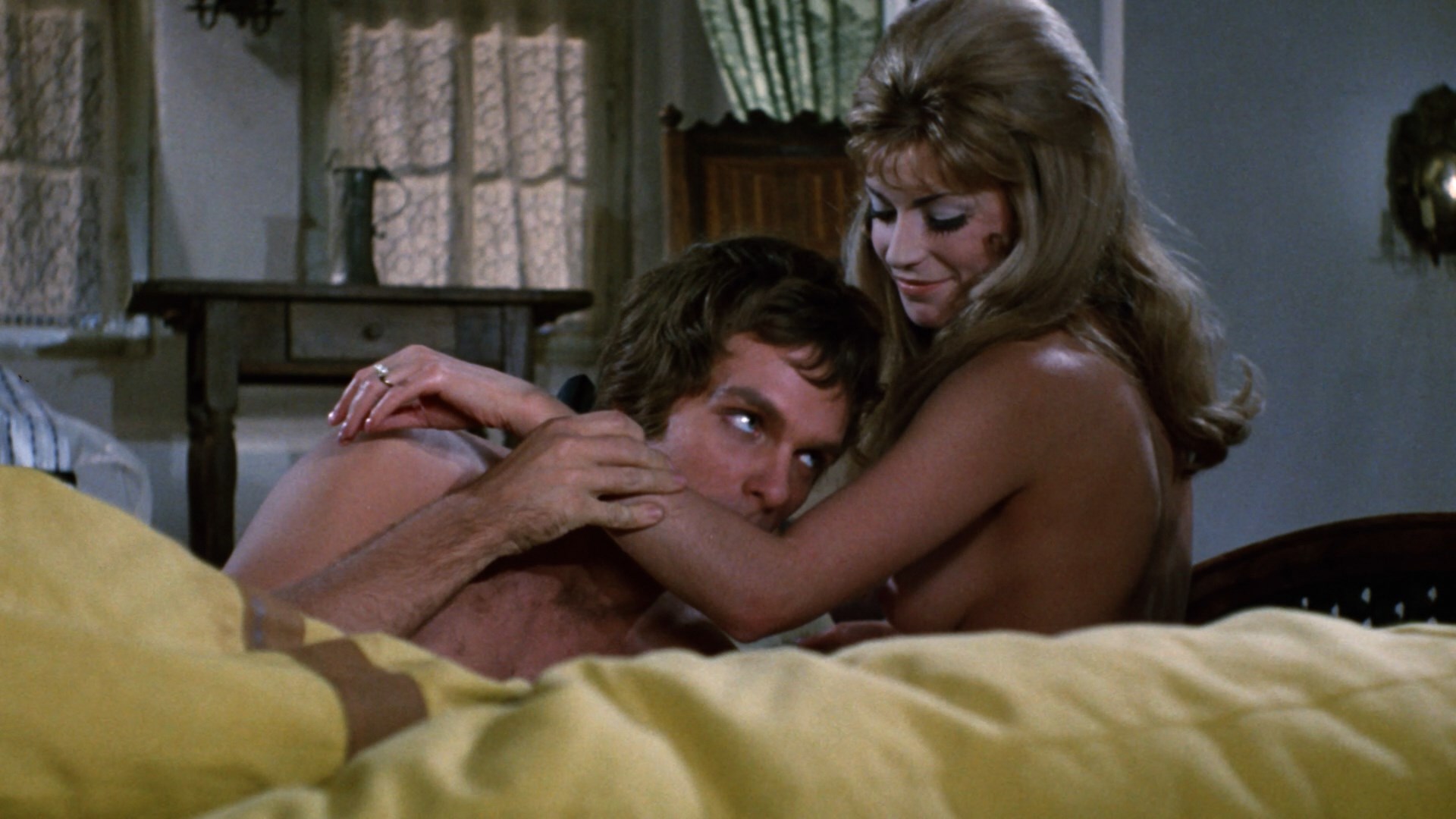 With the audience for its popular beach party and Edgar Allan Poe pictures waning in favor of rougher counterculture films, they had to decide whether to follow the new trend or go for prestige. In a bizarre move, they essentially split their bets by trying to mount prestige roadshow productions designed to attract attention first as premiere engagements in major cities; however, the big three films targeted for that approach -- De Sade, Angel, Angel, Down We Go, and Wuthering Heights -- all turned out to be bumpy productions that ended up getting far less lofty theatrical releases. De Sade proved to be the biggest black eye for AIP at the time since it had a major marketing budget and marked Keir Dullea's first starring role after 2001: A Space Odyssey. Slapped with an early X rating but later downgraded to a far more reasonable R, the film has late '60s AIP written all over it including a groovy score by Billy "The Munsters" Strange, tinted fantasy sequences focused on bouncing breasts instead of a panicking Vincent Price, and a bizarre animated main title sequence by Sandy Dvore that he obviously revisited right after this for The Dunwich Horror. The film's behind-the-scenes troubles ended up being more enduring than the film itself with Roger Corman stepping in (and ultimately shredding his relationship with AIP in the process) and
With the audience for its popular beach party and Edgar Allan Poe pictures waning in favor of rougher counterculture films, they had to decide whether to follow the new trend or go for prestige. In a bizarre move, they essentially split their bets by trying to mount prestige roadshow productions designed to attract attention first as premiere engagements in major cities; however, the big three films targeted for that approach -- De Sade, Angel, Angel, Down We Go, and Wuthering Heights -- all turned out to be bumpy productions that ended up getting far less lofty theatrical releases. De Sade proved to be the biggest black eye for AIP at the time since it had a major marketing budget and marked Keir Dullea's first starring role after 2001: A Space Odyssey. Slapped with an early X rating but later downgraded to a far more reasonable R, the film has late '60s AIP written all over it including a groovy score by Billy "The Munsters" Strange, tinted fantasy sequences focused on bouncing breasts instead of a panicking Vincent Price, and a bizarre animated main title sequence by Sandy Dvore that he obviously revisited right after this for The Dunwich Horror. The film's behind-the-scenes troubles ended up being more enduring than the film itself with Roger Corman stepping in (and ultimately shredding his relationship with AIP in the process) and 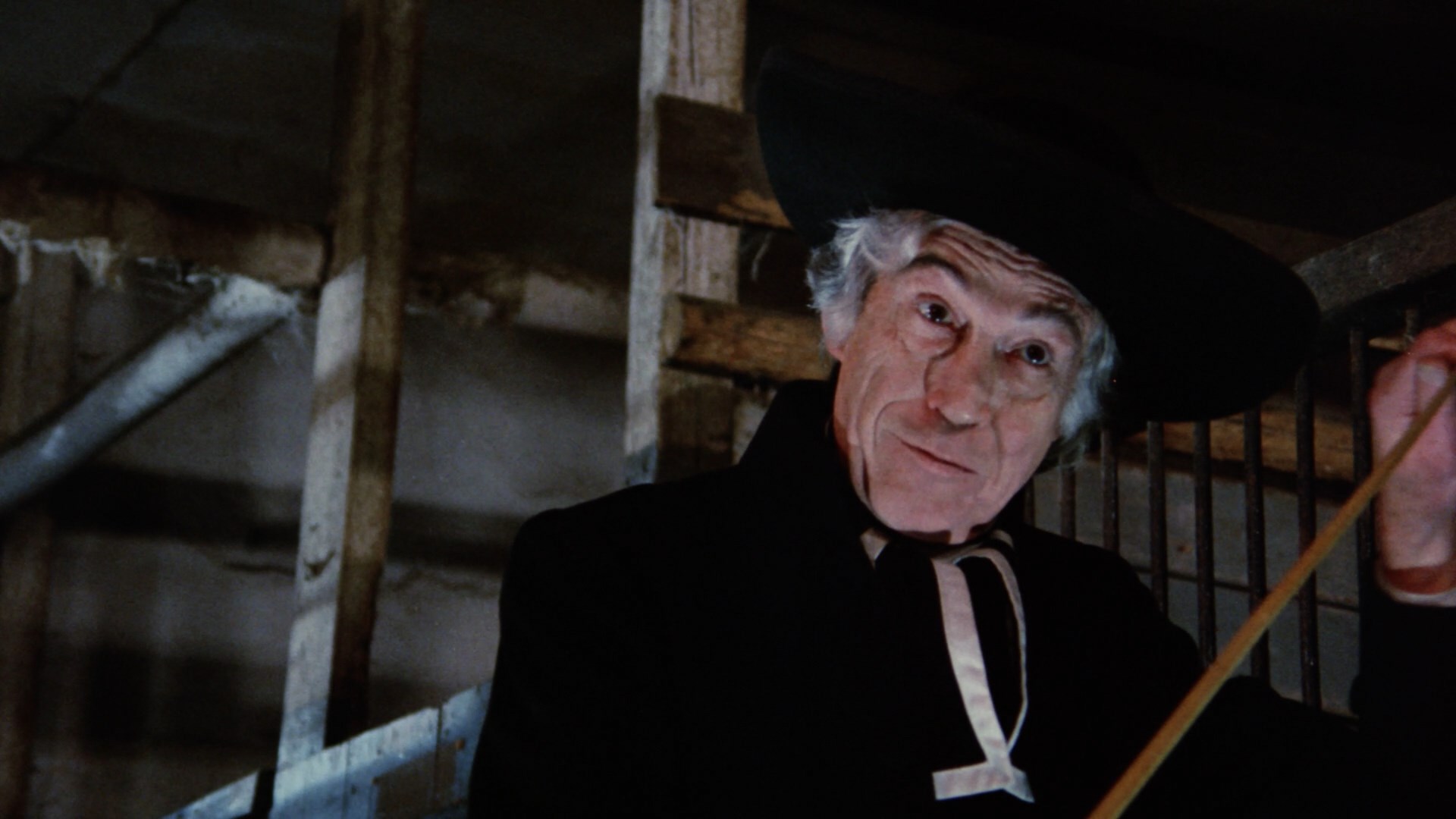 directing a substantial portion after initial director Cy
directing a substantial portion after initial director Cy 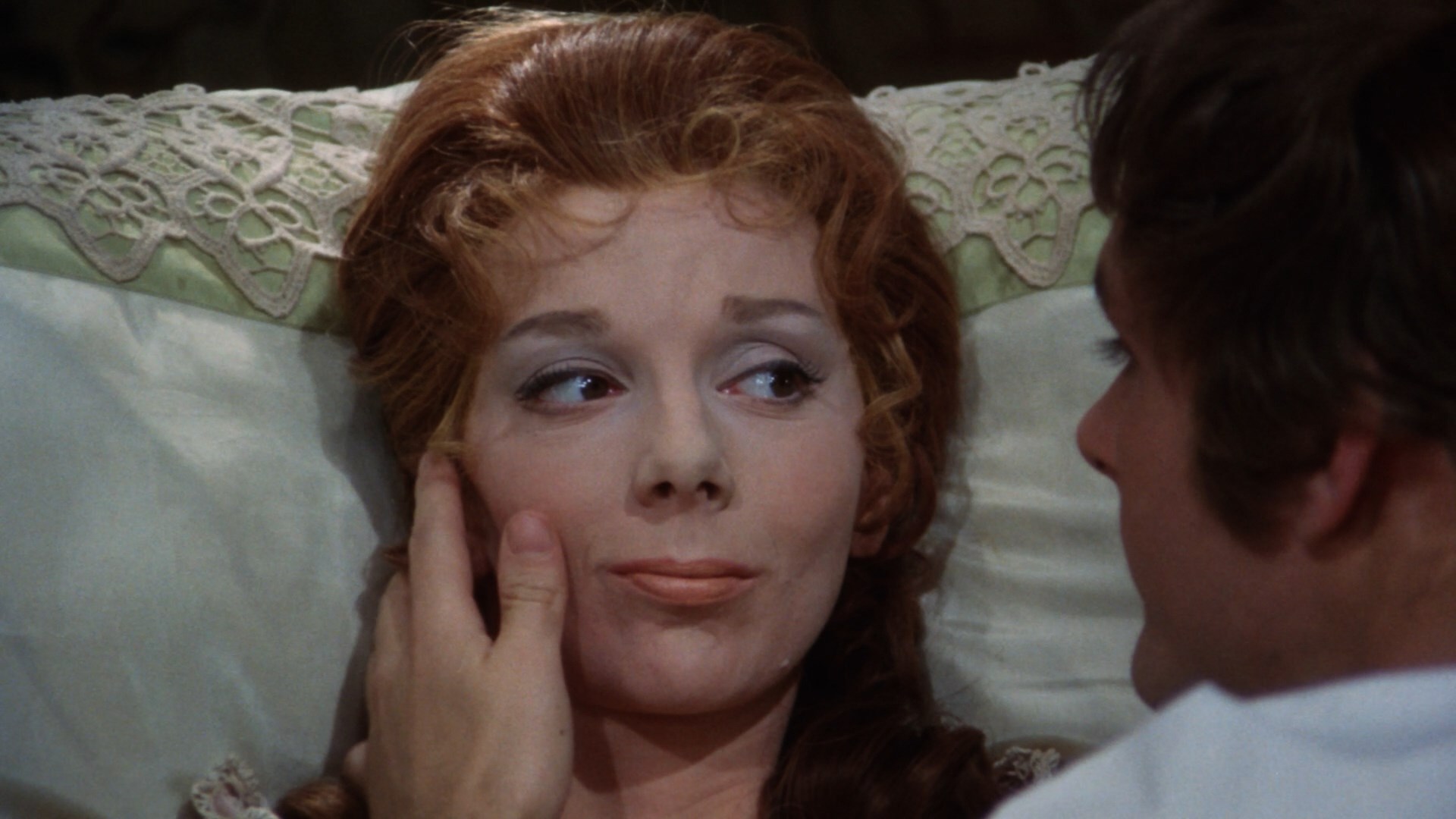 Endfield (Zulu) fell ill. By that point screenwriter Richard Matheson wasn't thrilled with the restructuring of his original, less linear screenplay, and the film was substantially cut down to just over 90 minutes for most general engagements. Ultimately it has since been restored to its full running time and, while never likely to be listed among AIP's shining moments, does offer a bizarre, compulsively watchable experience if you're in the right mood.
Endfield (Zulu) fell ill. By that point screenwriter Richard Matheson wasn't thrilled with the restructuring of his original, less linear screenplay, and the film was substantially cut down to just over 90 minutes for most general engagements. Ultimately it has since been restored to its full running time and, while never likely to be listed among AIP's shining moments, does offer a bizarre, compulsively watchable experience if you're in the right mood.
After a stint in jail, the aging Marquis de Sade (Dullea) returns to his family home during wintertime where his uncle, the Abbé (Huston), urges him to watch an impromptu theatrical production inspired by his family's life. Performance and reality soon blur via flashbacks as we see his youthful imposed marriage to Renée de Montreuil (Peeping Tom's Massey), the early awakening of his lustful desires for drunken debauchery and rough sex, his pursuit of sister-in-law Anne (Berger), and a string of family tragedies and other misfortunes that will fill him with regret.
Despite Sade's status as the author of some of the most notorious novels in history and a major proponent of the libertine philosophy, this film sidesteps almost all of that in favor of a string of bedroom encounters both real and imagined interspersed with social and family drama. That's fine as far as it goes for the time, though Dullea's presence doesn't exactly scream perversity, danger, or sexual abandon. On the other hand, Berger is an always welcome presence, it's always a kick seeing Huston 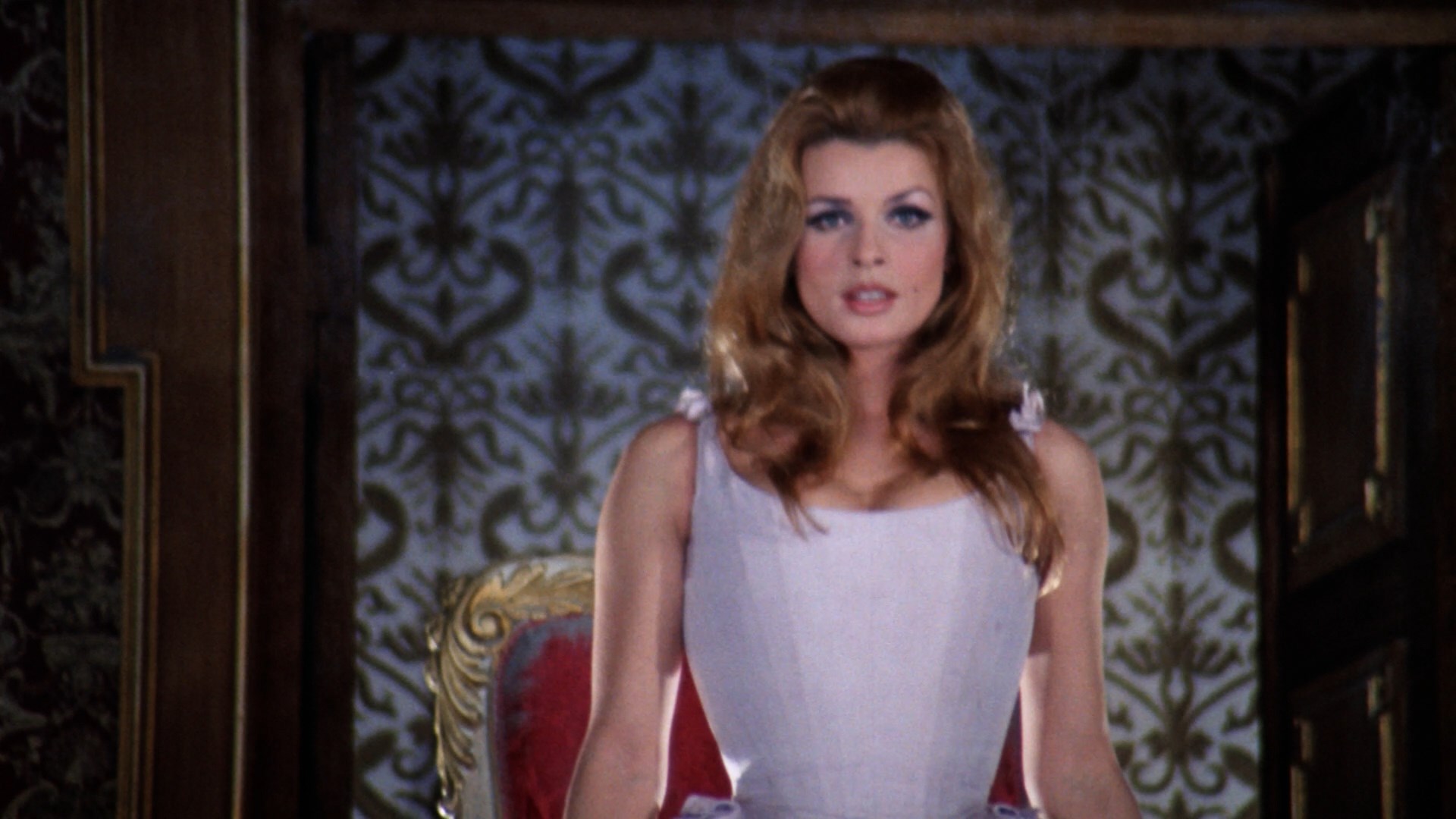 turn up in roles like this, and the psychedelic score somehow works for the most part. It's also a great-looking production, largely thanks to the participation of Artur Brauner's longstanding German studio CCC Film who had recently cranked out several Krimi classics and co-financed Dario Argento's first two films. Incredibly, this film (likely spurred by the success of Peter Brook's Marat/Sade)
turn up in roles like this, and the psychedelic score somehow works for the most part. It's also a great-looking production, largely thanks to the participation of Artur Brauner's longstanding German studio CCC Film who had recently cranked out several Krimi classics and co-financed Dario Argento's first two films. Incredibly, this film (likely spurred by the success of Peter Brook's Marat/Sade) 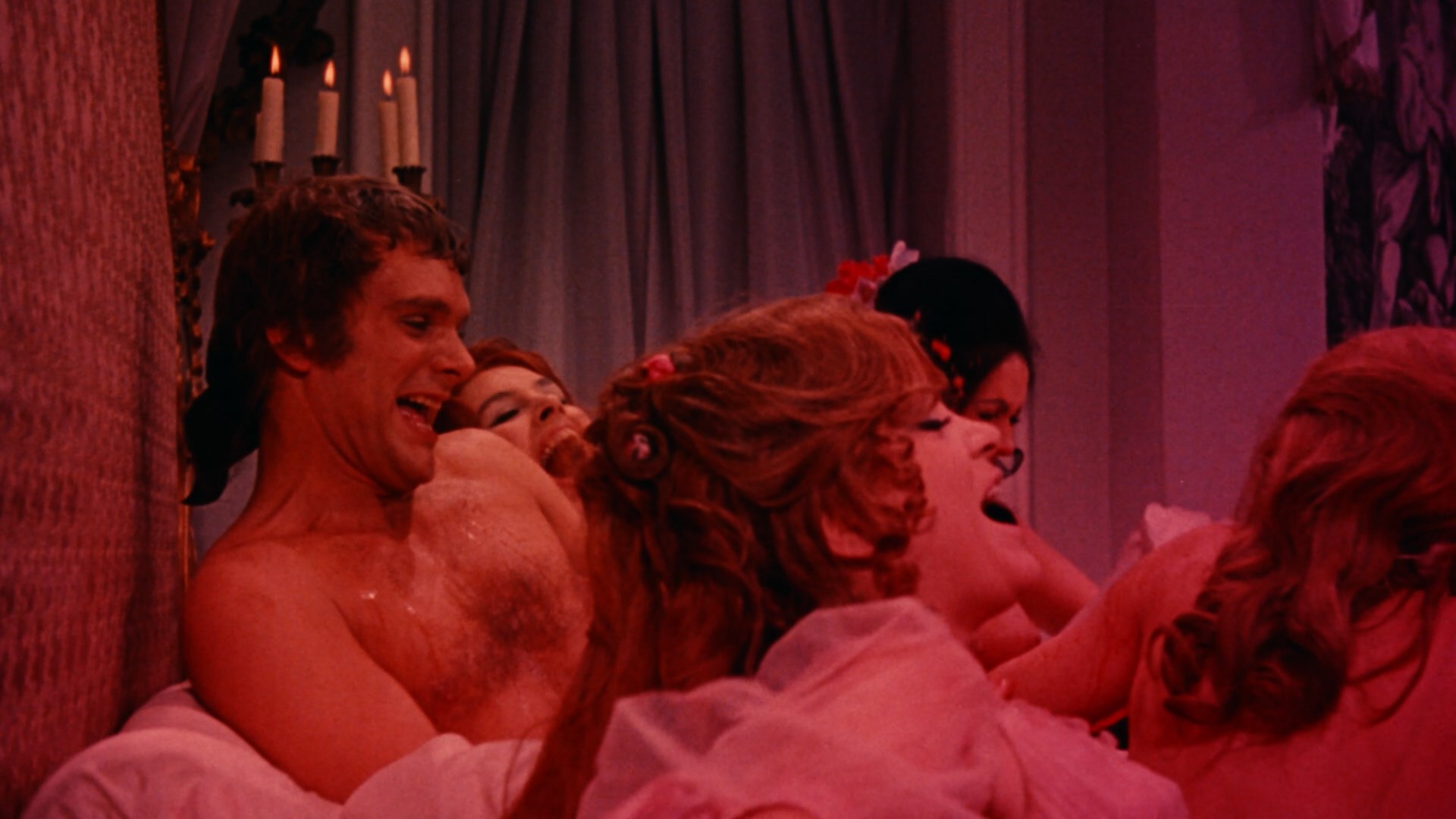 turned out to be the flagship of a peculiar European Sadesploitation wave that also produced Jess Franco's Justine and Eugenie... The Story of Her Journey into Perversion around the same time.
turned out to be the flagship of a peculiar European Sadesploitation wave that also produced Jess Franco's Justine and Eugenie... The Story of Her Journey into Perversion around the same time.
Due to its dismal box office reception, De Sade dropped out of sight for many years with its content (about on par with your average '60s issue of Playboy) making it unsuitable for TV airings. Eventually it did pop up on Greek VHS but didn't get a really solid, uncut release until MGM issued it on DVD in 2002 featuring a nice widescreen transfer and an 8m35s video interview with Matheson, part of the studio's "Storyteller" series with him, exploring how he first came aboard and how much his script was overhauled during the difficult process of getting it to the screen. That featurette is retained on the film's Blu-ray debut from Scorpion Releasing (via Kino Lorber) in 2022, featuring a very nice uncut HD scan that looks about on par with other MGM-supplied AIP presentations. The DTS-HD MA English 2.0 track is also in good shape and features optional English SDH subtitles. Video Watchdog's Tim Lucas provides an extremely thorough and well-researched audio commentary, understandably focusing a lot on Corman and Matheson while laying out the bumpy process of how this came to be and the various, extreme liberties taken with the real historical figure. Also included are the original trailer (in SD) and a bonus trailer for Privilege.
Reviewed on September 2, 2022.





 American International Pictures was in a strange place.
American International Pictures was in a strange place.  With the audience for its popular beach party and Edgar Allan Poe pictures waning in favor of rougher counterculture films, they had to decide whether to follow the new trend or go for prestige. In a bizarre move, they essentially split their bets by trying to mount prestige roadshow productions designed to attract attention first as premiere engagements in major cities; however, the big three films targeted for that approach -- De Sade, Angel, Angel, Down We Go, and Wuthering Heights -- all turned out to be bumpy productions that ended up getting far less lofty theatrical releases. De Sade proved to be the biggest black eye for AIP at the time since it had a major marketing budget and marked Keir Dullea's first starring role after 2001: A Space Odyssey. Slapped with an early X rating but later downgraded to a far more reasonable R, the film has late '60s AIP written all over it including a groovy score by Billy "The Munsters" Strange, tinted fantasy sequences focused on bouncing breasts instead of a panicking Vincent Price, and a bizarre animated main title sequence by Sandy Dvore that he obviously revisited right after this for The Dunwich Horror. The film's behind-the-scenes troubles ended up being more enduring than the film itself with Roger Corman stepping in (and ultimately shredding his relationship with AIP in the process) and
With the audience for its popular beach party and Edgar Allan Poe pictures waning in favor of rougher counterculture films, they had to decide whether to follow the new trend or go for prestige. In a bizarre move, they essentially split their bets by trying to mount prestige roadshow productions designed to attract attention first as premiere engagements in major cities; however, the big three films targeted for that approach -- De Sade, Angel, Angel, Down We Go, and Wuthering Heights -- all turned out to be bumpy productions that ended up getting far less lofty theatrical releases. De Sade proved to be the biggest black eye for AIP at the time since it had a major marketing budget and marked Keir Dullea's first starring role after 2001: A Space Odyssey. Slapped with an early X rating but later downgraded to a far more reasonable R, the film has late '60s AIP written all over it including a groovy score by Billy "The Munsters" Strange, tinted fantasy sequences focused on bouncing breasts instead of a panicking Vincent Price, and a bizarre animated main title sequence by Sandy Dvore that he obviously revisited right after this for The Dunwich Horror. The film's behind-the-scenes troubles ended up being more enduring than the film itself with Roger Corman stepping in (and ultimately shredding his relationship with AIP in the process) and  directing a substantial portion after initial director Cy
directing a substantial portion after initial director Cy  Endfield (Zulu) fell ill. By that point screenwriter Richard Matheson wasn't thrilled with the restructuring of his original, less linear screenplay, and the film was substantially cut down to just over 90 minutes for most general engagements. Ultimately it has since been restored to its full running time and, while never likely to be listed among AIP's shining moments, does offer a bizarre, compulsively watchable experience if you're in the right mood.
Endfield (Zulu) fell ill. By that point screenwriter Richard Matheson wasn't thrilled with the restructuring of his original, less linear screenplay, and the film was substantially cut down to just over 90 minutes for most general engagements. Ultimately it has since been restored to its full running time and, while never likely to be listed among AIP's shining moments, does offer a bizarre, compulsively watchable experience if you're in the right mood. turn up in roles like this, and the psychedelic score somehow works for the most part. It's also a great-looking production, largely thanks to the participation of Artur Brauner's longstanding German studio CCC Film who had recently cranked out several Krimi classics and co-financed Dario Argento's first two films. Incredibly, this film (likely spurred by the success of Peter Brook's Marat/Sade)
turn up in roles like this, and the psychedelic score somehow works for the most part. It's also a great-looking production, largely thanks to the participation of Artur Brauner's longstanding German studio CCC Film who had recently cranked out several Krimi classics and co-financed Dario Argento's first two films. Incredibly, this film (likely spurred by the success of Peter Brook's Marat/Sade)  turned out to be the flagship of a peculiar European Sadesploitation wave that also produced Jess Franco's Justine and Eugenie... The Story of Her Journey into Perversion around the same time.
turned out to be the flagship of a peculiar European Sadesploitation wave that also produced Jess Franco's Justine and Eugenie... The Story of Her Journey into Perversion around the same time.![]()